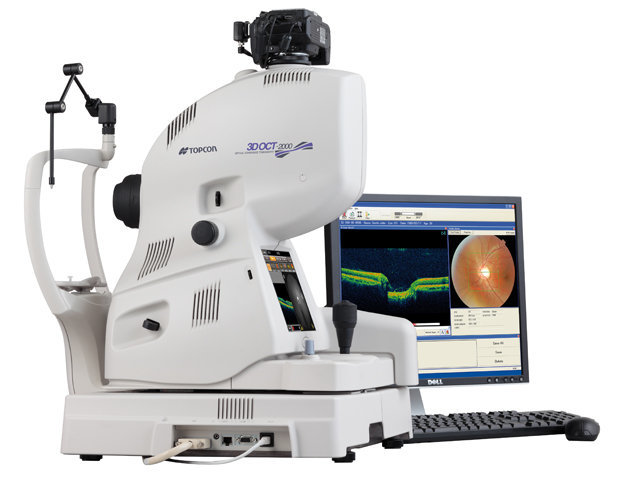
OCT uses light rather than sound waves to show the different layers that make up the back of your eye. At the practice, we have a Topcon OCT scanner which your optometrist will use to take both a digital photograph and a 3D cross-sectional scan of the back of your eye in one go.
This quick scan allows us to diagnose a number of common conditions and the software can automatically detect even the most subtle changes to the retina with every eye test you take, giving us an invaluable record of the health and condition of your eyes.
What can the scan check for?
Common conditions we can identify through regular OCT screening include:
- Age related macular degeneration: this is the most common cause of vision loss in individuals over the age of fifty
- Diabetes: OCT examination enables us to detect diabetic retinopathy early which greatly improves the success rate of treatment
- Glaucoma: Glaucoma affects the optic nerve, but has no painful symptoms and does not greatly change your eyesight even though vision is being damaged. An OCT examination helps us identify if you are at risk or what stage of glaucoma you may have.
- Vitreous detachments: As we age, the vitreous jelly that takes up space in our eyeball can change and move away from the back of the eye. In some cases, parts do not detach, and that cause pulling on the retinal surface. This is not painful, but the back of the eye may be being damaged, which is why an OCT scan is important.
- Macular holes: Vitreous detachment can also create holes in the macular, the part of the retina responsible for sharp, detailed, central vision. Extreme exposure to sunlight can also cause a macular hole to develop.
Book an appointment with us today if you would like a scan, or ask your optometrist for more information at your next check-up.